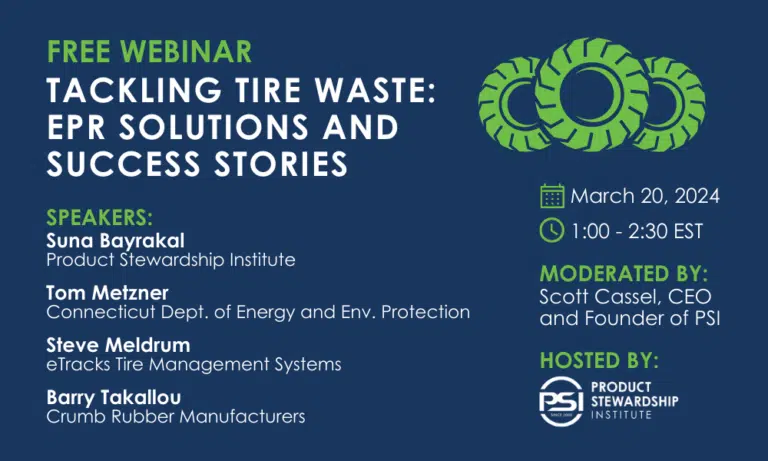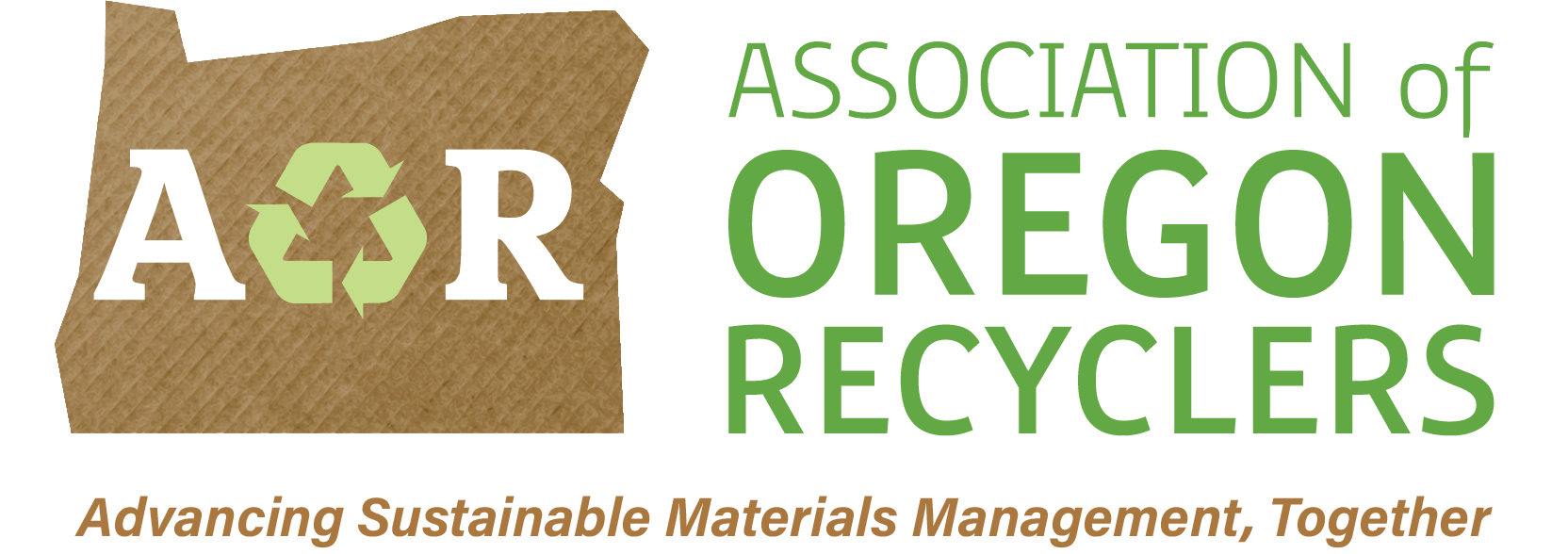WEBINAR: Tackling Tire Waste: EPR Solutions and Success Stories

Each year, over 250 million tires are discarded in the U.S., with only 40% being recycled. The remaining tires are either burned as tired-derived fuel, (which the tire industry erroneously considers recycling), illegally dumped, or landfilled leading to negative public health and environmental impacts.
In 2023, Connecticut became the first U.S. state to enact an extended producer responsibility (EPR) law for tires, which aims to combat illegal dumping, boost tire retreading and recycling, and deliver cost savings to municipalities and taxpayers. EPR has long been a viable policy solution for managing scrap tires in Europe and Canada. With tire EPR programs in place for nearly two decades in Europe, some nations (e.g., Sweden and Ireland) have achieved a 100% reuse, retread, and recycling rate. In Canada, similar programs have been operating since 2007, with programs in Manitoba and Ontario achieving 100% scrap tire collection and recycling rates and creating hundreds of recycling jobs.
As momentum for tire EPR continues to grow in the U.S., we turn to our expert panel for lessons learned and insights on best practices for scrap tire management. The panel includes PSI’s Director of Policy and Programs, Dr. Suna Bayrakal, who has developed and analyzed tire EPR programs for over a decade. Tom Metzner, EPR lead for the Connecticut Department of Energy and Environmental Protection will share how the state developed, enacted, and is now implementing its landmark EPR law. Barry Takallou of Crumb Rubber Manufacturers will provide insights into the business benefits of tire EPR laws. Lastly, Steve Meldrum, CEO of eTracks Tire Management Systems, will offer his perspective on the success factors behind Canadian tire EPR programs.
This webinar is open to the entire PSI community; however, the recording will be accessible only to PSI’s Members and Partners
